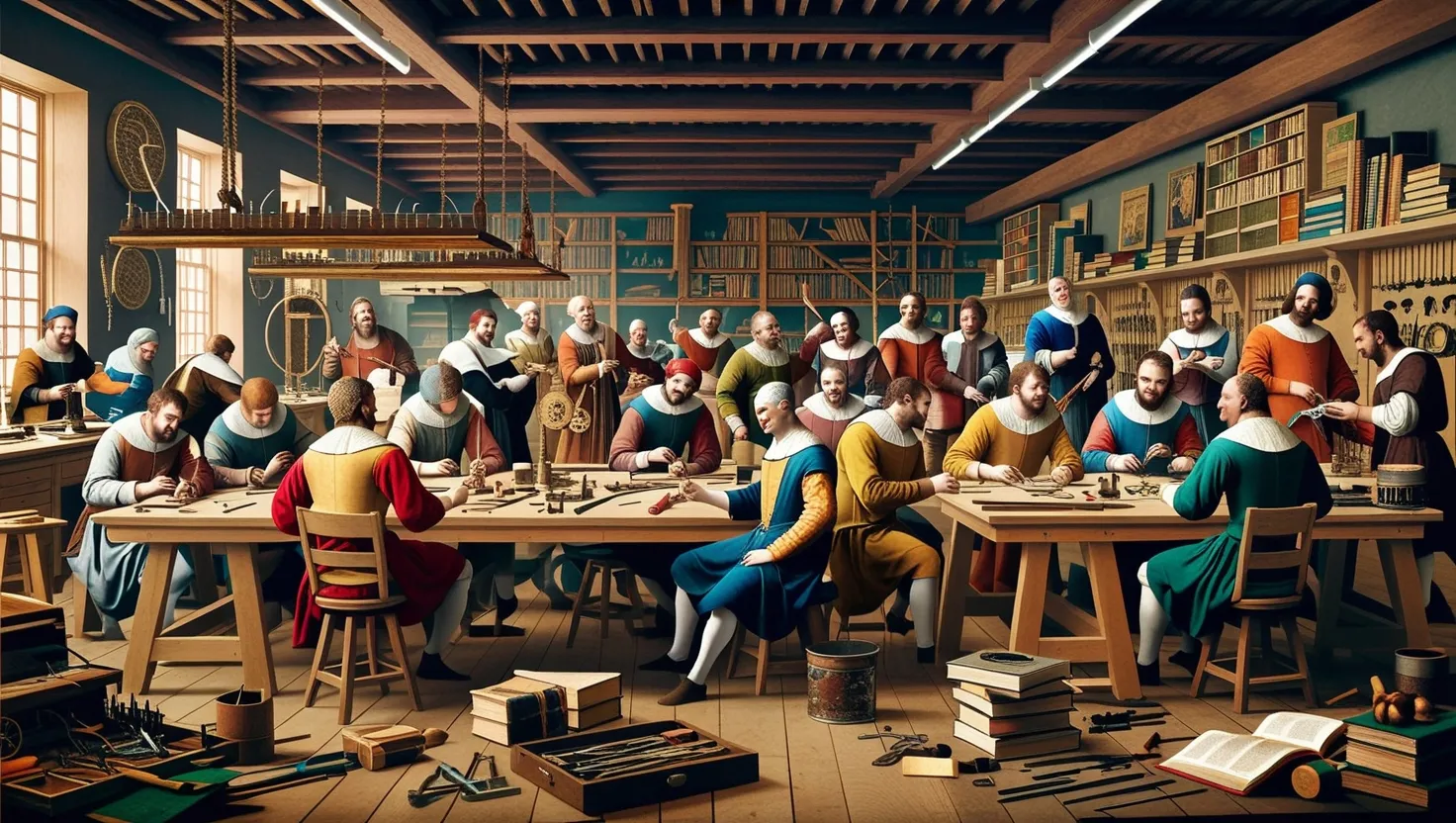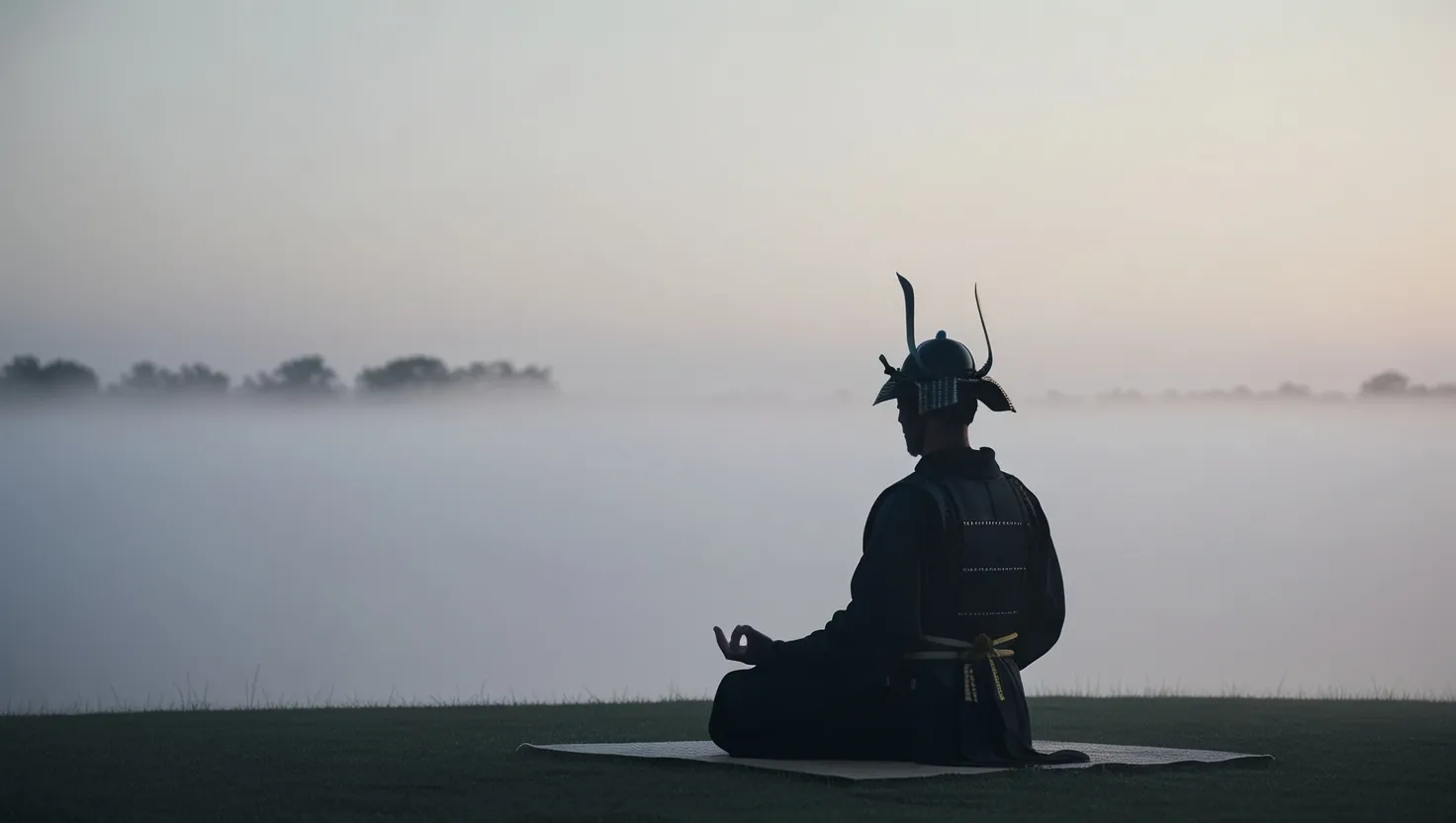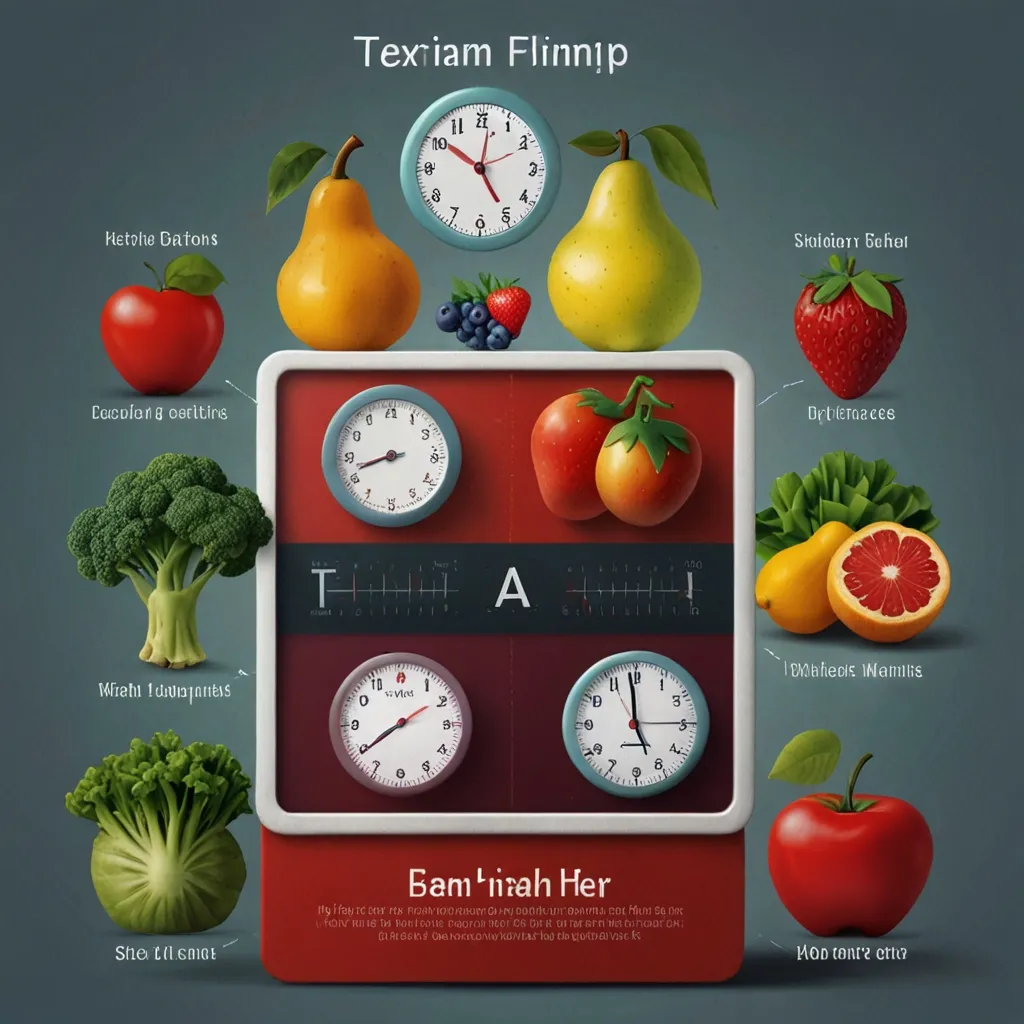In the midst of our fast-paced, technologically driven lives, it’s easy to forget the simple yet powerful habits that can spark creativity and foster personal growth. The Renaissance, a period marked by an explosion of innovation and artistic expression, offers us a treasure trove of practices that can be just as relevant today as they were centuries ago.
Cultivate Curiosity
Imagine walking through a bustling market in 15th-century Florence, surrounded by artisans, scientists, and philosophers all eager to share their latest discoveries. This was the world of the Renaissance thinkers, who embodied a relentless curiosity about everything around them. Leonardo da Vinci, the quintessential Renaissance man, is a prime example. He pursued science, art, and engineering not for fame or fortune, but out of pure curiosity. His notebooks are filled with ideas and observations that would have revolutionized his era had he chosen to publish them.
“Being relentless and randomly curious about everything around us is something that each of us can push ourselves to do, every waking hour, just as he did,” as noted by Walter Isaacson in his biography of da Vinci.
How often do you find yourself wondering about the world around you? Why does the sky appear blue? How do birds fly? These childlike questions can lead to profound discoveries and a deeper understanding of the world.
Practice Interdisciplinary Thinking
Renaissance polymaths were masters of combining seemingly disparate fields to create something entirely new. Da Vinci’s sketches of human anatomy were informed by his studies in engineering and physics, while his art was enriched by his understanding of light and shadow. This interdisciplinary approach allowed him to see connections where others saw only divisions.
In today’s specialized world, it’s easy to get trapped in our own silos. But what if you were to combine your passion for music with your knowledge of mathematics? Or merge your love of writing with your understanding of psychology? The possibilities are endless when you start connecting ideas from different fields.
Embrace Apprenticeship
The Renaissance was a time when mentorship and apprenticeship were highly valued. Young artists would spend years under the guidance of master craftsmen, honing their skills and learning the intricacies of their craft. Michelangelo, for instance, was sponsored by Pope Julius II and members of Florence’s mercantile class, which allowed him to refine his art under the tutelage of the best.
In an age where self-learning is more accessible than ever, it’s still invaluable to seek guidance from experts. Whether it’s finding a mentor in your field or attending workshops and seminars, continuous learning is key to refining your skills and staying innovative.
Keep a Commonplace Book
Renaissance scholars were known for their commonplace books – notebooks filled with ideas, observations, and insights. These books were personal repositories of knowledge, where thoughts and inspirations could be recorded and revisited later. By keeping such a journal, you can capture your fleeting ideas and reflect on them over time.
What if you started a journal today? How would it change the way you think and create? Remember, “Nothing is a waste of time if you use the experience wisely,” as Auguste Rodin once said.
Engage in Intellectual Discourse
The salons of the Renaissance were vibrant hubs of intellectual debate and discussion. These gatherings brought together people from various backgrounds to exchange ideas and challenge each other’s perspectives. In an era where social media often replaces face-to-face interaction, engaging in lively debates can be a powerful way to stimulate your creative thinking.
Imagine sitting in a cozy café, surrounded by friends and acquaintances, discussing everything from the latest scientific breakthroughs to the meaning of life. How would such conversations enrich your understanding of the world and inspire new ideas?
Pursue Artistic Expression
Renaissance culture was a celebration of various art forms. From the masterpieces of Michelangelo to the sonnets of Shakespeare, artistic expression was seen as a vital part of a well-rounded life. Engaging in creative activities like painting, writing, or music can enhance your self-expression and cognitive flexibility.
What creative outlet have you always wanted to explore but never had the time for? Perhaps it’s time to pick up that paintbrush or dust off your old guitar. As Ellen J. Langer writes, “Any creative activity can have a powerful effect on our lives if we pursue it mindfully.”
The Power of Mindfulness
When you immerse yourself in the joy of creation, it’s inevitable that you’ll encounter moments where your work doesn’t quite meet your expectations. But here’s the key: don’t let disappointment deter you. Instead, focus on the process rather than the outcome. Langer advises, “Don’t give yourself more than a minute or two to judge. Rather, think how much you enjoy immersing yourself in creation and get to it.”
This mindset is crucial in today’s fast-paced world, where the pressure to produce perfect results can be overwhelming. By being fully in the moment and sidestepping the constant chatter of self-doubt, you can tap into a deeper sense of creativity and purpose.
Living a Renaissance Life
The Renaissance was not just a historical period; it was a state of mind. It was about living a life that was creative, purposeful, and engaged. By adopting these habits – cultivating curiosity, practicing interdisciplinary thinking, embracing apprenticeship, keeping a commonplace book, engaging in intellectual discourse, and pursuing artistic expression – you can spark a personal renaissance in your own life.
So, what will you do today to ignite this spark? Will you pick up a book on a subject you know nothing about? Will you start a journal to record your thoughts and inspirations? Or will you simply take a moment to wonder at the beauty of the world around you?
In the words of Leonardo da Vinci, “The noblest pleasure is the joy of understanding.” By embracing these Renaissance habits, you can experience this joy firsthand and live a life that is as rich in creativity as it is in purpose.






